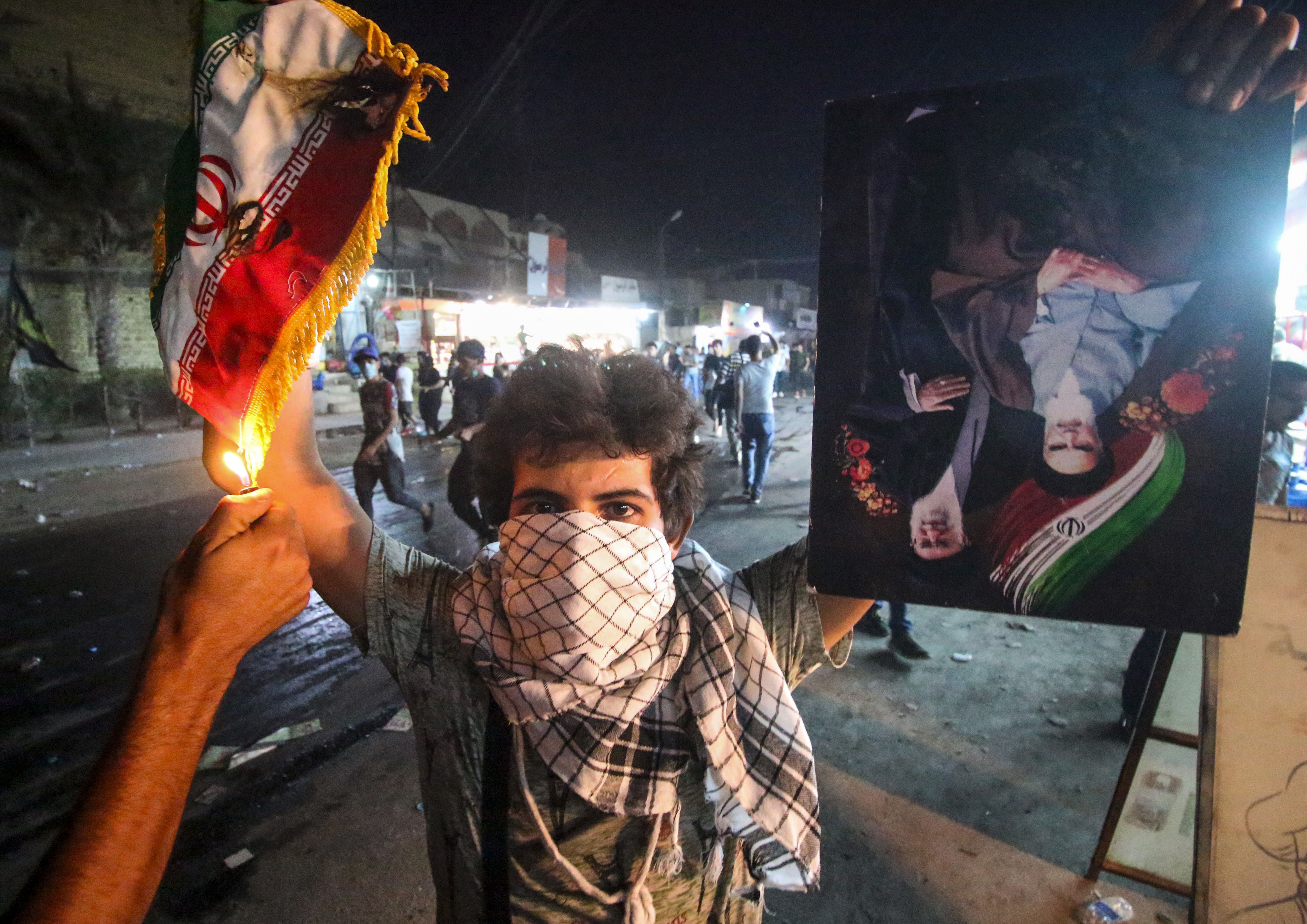Amid the Trump administration’s almost weekly lash outs against Iran — mostly on its presence in its own region and on the nuclear agreement the United States is now violating — comes a particularly stunning demand: That Iran do more to protect U.S. interests in Iraq.
Here’s what’s going on:
On Friday, three mortar bombs landed inside Baghdad’s Green Zone, a fortified area where the U.S. embassy is located. There were no casualties.
That same day, Iran’s consulate in Basra (around 330 miles southeast of Baghdad), was attacked and torched by demonstrators, who have been protesting massive corruption and the cuts to their basic services there for weeks.
And on Saturday, the U.S. Consulate there was attacked by rockets. Again, no real damage, no casualties.

Totally ignoring the fact that Iran’s own consulate was destroyed — along with Iraqi government offices — the White House on Tuesday released a statement holding Iran accountable for an attack on the U.S. consulate office there:
Over the past few days, we have seen life-threatening attacks in Iraq, including on the United States consulate in Basra and against the American embassy compound in Baghdad. Iran did not act to stop these attacks by its proxies in Iraq, which it has supported with funding, training, and weapons.
Holding Tehran directly responsible for the attack, the statement promised retaliation. Iran, meanwhile, has resettled its consular staff at a new location in Basra, striking back at the White House by calling its statement, “shocking, provocative, and irresponsible.”
While following President Donald Trump’s narrative of blaming Iran for everything and using the language of escalation and incitement, what’s interesting about the statement is that it expects Iran to do something
In May, shortly after the president pulled the United States out of the 2015 nuclear deal with Iran, the Joint Comprehensive Plan of Action (JCPOA), Secretary of State Mike Pompeo gave a speech at the Heritage Foundation in Washington, D.C., outlining what the United States wants from Iran in order to lift sanctions that were lifted under the JCPOA and are being reimposed by the Trump administration. (Yes, the relationship between Tehran and Washington is less a timeline of progress and more of a swinging pendulum).
Among the list of demands was this: That Iran “respect the sovereignty of the Iraqi Government and permit the disarming, demobilization, and reintegration of Shia militias.” In other words, the very forces that the White House wanted Iran to marshal in its protection are the ones it also wants Iran to dismantle.
Of course, the chaos is in Iraq was not created by the Trump administration. It was inherited from the administrations of Presidents George W. Bush and Barack Obama, whose missteps and poor alliances continue to sew mayhem for Iraqis.
Since the 2003 invasion of Iraq (an invasion based on false pretenses), the country has become an open wound of a battlefield, vulnerable to al-Qaeda, the self-described Islamic State (ISIS) and other armed groups, in addition to dealing with the pressures of Iranian influence while coping with the U.S.’s piecemeal surge–drawdown tactics that have left efforts to rebuild in tatters.
Then, there are Iraq’s own domestic politics.
Fed up with rife corruption and few legitimate choices, Iraqis turned out in low numbers for their elections in May. While there was no definitive winner — a coalition government is still in the offing — the certain loser was the current U.S.-backed prime minister, Haider al-Abadi, who is currently ignoring the chorus of angry voices screaming for him to step down.
Al-Abadi is looking to the winning bloc, the Sairoon party led by Shia leader Muqtada al-Sadr, to keep him in power.
To say that this would form an uneasy alliance for the U.S. is an understatement, but having backed al Abadi to the exclusion of all others — even supporting his push against the Kurdish region’s secessionist vote last fall — the U.S. is largely left without options for allies in Iraq.

